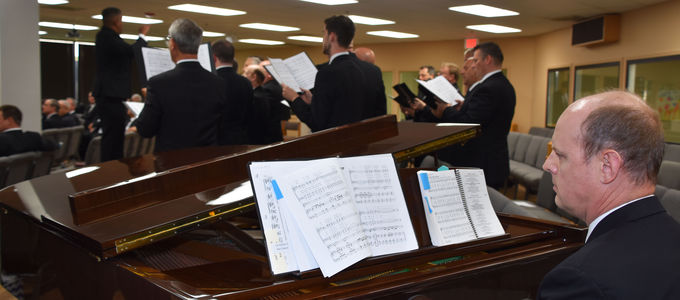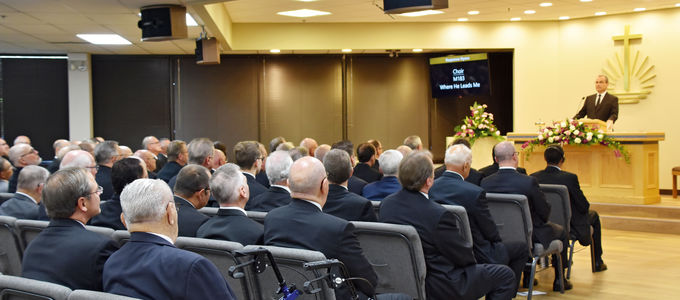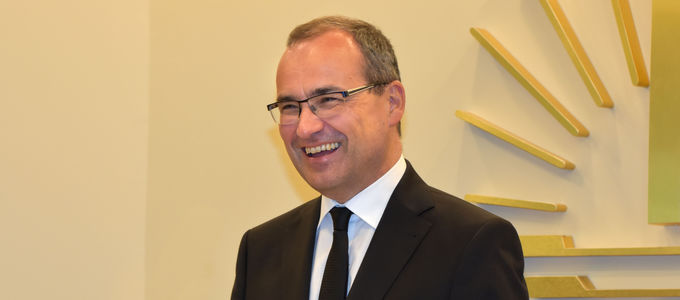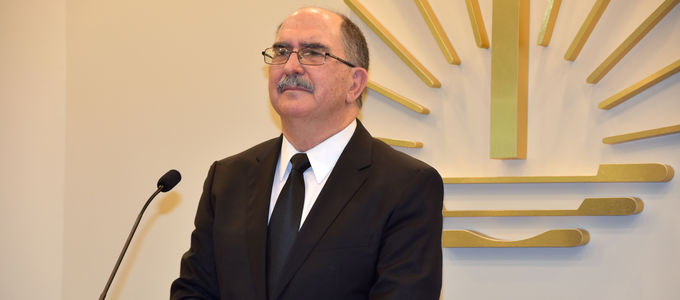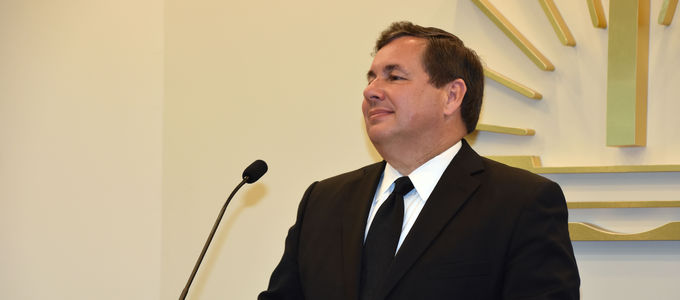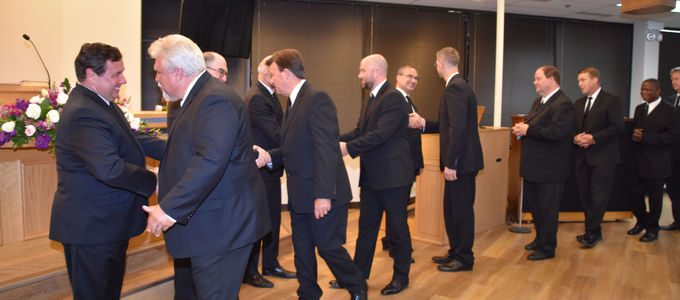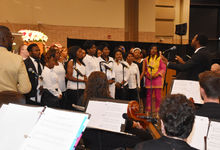Go!
Let’s move! Jesus urges His disciples to overcome their apathy, to move on, and begin to teach the people. This exhortation applies to the ministers, but also to every single Christian.
The four elements of the Great Commission were the basis for a divine service that Chief Apostle Jean-Luc Schneider celebrated in the United States. His sermon on Saturday, 10 June 2017 in Chicago was based on words from Matthew: “Go therefore and make disciples of all the nations, baptising them in the name of the Father and of the Son and of the Holy Spirit, teaching them to observe all things that I have commanded you; and lo, I am with you always, even to the end of the age” (Matthew 28: 19–20).
First part of the mission: Go!
The ministry is a commission. No one becomes boss with an ordination. Nor does anyone move up on the social ladder. “You receive a mandate to work. You have a mission to fulfil,” the Chief Apostle said.
Growing in knowledge. To go also means to move. We cannot remain where we are. We need to grow in the knowledge of Christ. And for that we need the guidance of the Holy Spirit.
Spreading the gospel requires personal contact. It is not the task of the Church. Jesus did not give the mission to an organisation or a company. It is a mission which Jesus has given each one of us personally. “Go and tell the people, convince them, motivate them.”
Second part of the mission: making disciples of all the nations
The universality of the gospel. The requirement to proclaim the gospel is faith, the Chief Apostle said. The gospel is for all people: regardless of origin, culture, and situation.
Sharing it with all people. The gospel must not only be proclaimed in all countries, but also among all levels of the population: regardless of culture, age, or prosperity. “When I see the congregations around the world, I ask myself whether this is really an accurate picture of the population,” Chief Apostle Schneider said.
Do not make any promises. It would be easy to promise someone who is sick that he will be healed or to tell someone who is poor that he will become rich if he becomes New Apostolic. That is nonsense. It would not make disciples of them. Jesus desires that people follow Him out of love and that they trust Him. Let us help them discover how great Jesus is. He is the loving one. He is grace. He is patience. He is the Almighty.
Third part of the mission: baptising
Making blessing and strength accessible to all. The commission to baptise is not limited to the dispensation of baptism with water and the Spirit. The task of ministers is to show believers the blessing and strength that lies in these sacraments: “Show them that baptism is not the end. It is only the beginning. The sacraments give you the power you need to change, to grow into the nature of Christ. The best way to explain this is to demonstrate it,” Chief Apostle Schneider said.
Fourth part of the mission: teaching
Love makes it possible. Once people have recognised how great and loving Jesus is they will love Him. And love will motivate them to keep the law of Christ. “Jesus has commanded us to teach,” Chief Apostle Schneider said.
Focus on eternal salvation. “It is our task to teach the law of Christ, not our own law, our own rules, and traditions. This is very clearly defined.”
No uniformity. Following Christ is not synonymous with uniformity. You can be a disciple of Christ whether you are poor or rich or young or old. People do not have to change. “They have to follow Christ and live according to the gospel in their situation, the conditions they live in.” The Chief Apostle added, “Of course we hope that the poor become richer and that the sick are healed, but that has nothing to do with teaching them as Jesus commanded.”
Staying calm in trials. Tests are not a punishment from God. They are not signs that He is no longer interested in us. “Don’t be discouraged, don’t be upset if something happens in your life. God expects a little more from us. It is all part of the teaching.” Let us bear witness of Jesus’ presence with us in tribulations.
Article info
Author:
Date:
Keywords:
Oliver Rütten
31.08.2017
USA,
journeys of Chief Apostle,
Divine service



